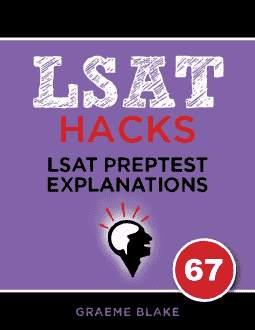QUESTION TEXT: Astronomer: Does a recent meteorite from Mars contain…
QUESTION TYPE: Flawed Reasoning
CONCLUSION: Tagar is wrong.
REASONING: Swiderski and Terrada disagree with Tagar.
ANALYSIS: You don’t need to know anything about bacteria to answer this question. The science is just there to scare you.
The argument is simple. The author says that Tagar is wrong because some other scientists disagree with him. It’s a silly argument. The author hasn’t shown why we should believe those other scientists. Maybe they are wrong and Tagar is right.
___________
- The argument doesn’t say how long those scientists have held their views. Why would it matter? People are allowed to change their minds.
- CORRECT. Maybe Tagar is a more credible expert, and we should believe him.
- The argument didn’t say that the two scientists were right because they outnumber Tagar.
- Swiderski and Terrada agree with each other. There’s no contradiction.
- This is silly. The author clearly believes that Tagar’s opinion is less justified (i.e. he’s wrong)


Hi Russell,
I think the key here is that the astronomer’s argument never actually makes any claims about how the number of scientists supporting a view affect its validity. The Astronomer does side with the set of authorities that happens to have two members, but nowhere is it claimed that the fact that there are two of them is the reason he believes they are right.
(C) would be a flaw if there was any reason to believe that the astronomer used this “more is better” logic. But from the argument, we have no reason to believe that this is the case.
In fact, we have no idea why the astronomer is inclined to agree with Swiderski and Terrada — and this is exactly why (B) is the correct answer!
Hope that helps!
I don’t quite understand why C isn’t correct. Yes, the argument never mentions that the more authorities supporting a hypothesis, the more valid it is. However, the answer says it “takes this for granted” In my mind that means, “presumes/assumes without justification”. If the Astronomer were making this assumption, his conclusion, that Swiderski & Terrada are right while Tagar is wrong, would correctly follow. In that case the “flaw” would be that he’s making this assumption **without evidence** Can you explain where I’m going wrong here?